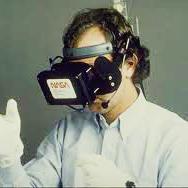Recent research indicates that most post-secondary students in North America "felt overwhelming anxiety" in the past few years, negatively affecting well-being and academic performance. Further research revealed that other emotions, biases, perceptions, and negative thoughts, can similarly affect student academic performance. To address this problem, we classify these counterproductive mindsets, including anxiety, into Scarcity Mindset, a self-limiting perspective that appropriates cognitive bandwidth required for essential processes like learning in favour of addressing more critical needs or perceived insufficiencies. Through a multi-disciplinary literature analysis of ideas in cognitive science, learning theories and mindsets, and current technology approaches that are suited to address the limitations of scarcity thinking, we identify strategies to help transition students to a more positive Abundance Mindsets. We demonstrate that these priming intervention strategies can transfer to leading-edge digital environments, particularly Virtual Reality (VR). Offering further insights into the findings of our two previously presented studies, we argue that priming interventions related to preparatory activities and the context priming are transferable to virtual reality environments. As such, building on our multidisciplinary research insights, we propose a comprehensive priming model that exploits priming techniques in an iterative process called Cyclical Priming Methodology (CPM). These intervention strategies can focus on student preparation, motivation, reflection, the context of the learning environment, and other aspects of the learning process. Building on CPM, we further propose a technology implementation within VR called Virtual Reality Experience Priming (VREP) and discuss the process to embed CPM/VREP activities within the Experiential Learning Theory (ELT) cycle.
翻译:最近的研究表明,北美大多数高校学生在过去几年感到压倒性的焦虑,对身心健康和学业表现产生了负面影响。进一步的研究揭示了其他情绪、偏见、看法和消极思维同样会影响学生的学业表现。为解决这个问题,我们把这些会导致低效状态的心态,包括焦虑,归类为"缺乏心态",这是一种自我限制的视角,它支配认知带宽的分配,而这些认知带宽实际上应该用于实现学习的必要过程。通过对认知科学、学习理论和心态的思考、以及目前适合应对不足思维局限的技术方法进行跨学科文献分析,我们确定了帮助学生转换到更积极的"丰盛心态"的策略。我们证明这些引导干预策略可以转化为前沿的数字环境,特别是虚拟现实(VR)。我们还提供了我们先前提出的两项研究的进一步信息,认为针对准备活动和环境启动的引导干预策略是可转化为虚拟现实环境的。因此,结合我们的多学科研究方案,我们提出了一种全面的引导模型,利用一个迭代过程称为循环引导方法(CPM)的引导技术。这些干预策略可以着重于学生的准备、动机、反思、学习环境的背景,以及学习过程的其他方面。基于CPM,我们进一步提出了一种虚拟现实(VR)中的技术实现,称为虚拟现实体验引导(VREP),并讨论如何将CPM / VREP活动嵌入实践性学习理论(ELT)的循环之中。



